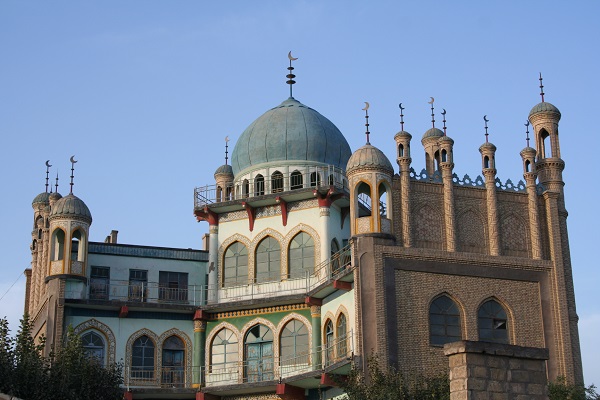
China Bans Islamic Baby Names with Religious Connotation in Xinjiang
- By Elisa Meyer --
- 08 May 2017 --
![By Rolf Müller (Own work) [GFDL or CC-BY-SA-3.0], via Wikimedia Commons](http://www.worldreligionnews.com/wp-content/uploads/2017/04/Mosque_yanqi_xinjiang.jpg)
An Islamic name ban has been put in place by the Chinese government in Muslim majority Xinjiang.
Chinese authorities in the Muslim-dominant Xinjiang province have forbidden baby names with Islamic undertones.[/tweetit] According to Beijing, this step is one of many in the government's crackdown on religious extremism. Critics, however, say that this government action limits the fundamental rights of Chinese citizens.
China Bans Islamic Baby Names with Religious Connotation[/tweetthis]
Names like Mecca, Islam, Saddam and Quran, along with names which reference the Islamic crescent moon and star symbols are deemed as unacceptable by the communist government. Any child with such names will not enjoy the hukou registration system for households. This is vital to a child's future as, without this registration, it will not be possible for anyone to gain access to education and healthcare. The Chinese authorities are especially wary of names which have a robust religious flavor, like Jihad. The names should not evoke any separatist thought or feelings. A complete name list has not been published until now and no directive has been given as to what qualifies as a religious name.
China has blamed religious extremists for a number of violent incidents that happened during the last few years. The incidents have left hundreds of people dead. A series of punitive police and military crackdowns have thus been launched in Xinjiang, which is home to a Muslim Uighur minority. Unsurprisingly, the Chinese military maintains a strong presence in the state.
Uighur Muslims are asked to follow the communist party line and not to do anything which can be construed as promoting evil cults and terrorist activities. A list containing banned names was first launched in Hotan prefecture. This 2015 ordinance is now rolled out all over Xinjiang. About 10 million Muslims live in this area.
Sophie Richardson of Human Rights Watch says this step is simply the latest of a number of new regulations which limit religious freedom in the guise of tackling “religious extremism.” She said that such policies are outright violations of international and domestic protections on rights to freedom of expression and also of beliefs. She continued on to say if the Chinese Government is actually serious about bringing harmony and also stability to Xinjiang, it should stop such repressive policies.
China Bans ‘Muhammad’ and ‘Jihad’ as Baby Names in Heavily Muslim Region.. now who will dare to say this is inntolerence? @hstapanghosh
— abhay vartak (@AbhayVartak) April 26, 2017
A new legislation brought by Xinjiang authorities widened the scope of a number of restrictions, like giving powers to airport and train station staff to refuse entry to any woman who wears a veil covering her face. Unusual beards on men's faces are also prohibited.




















